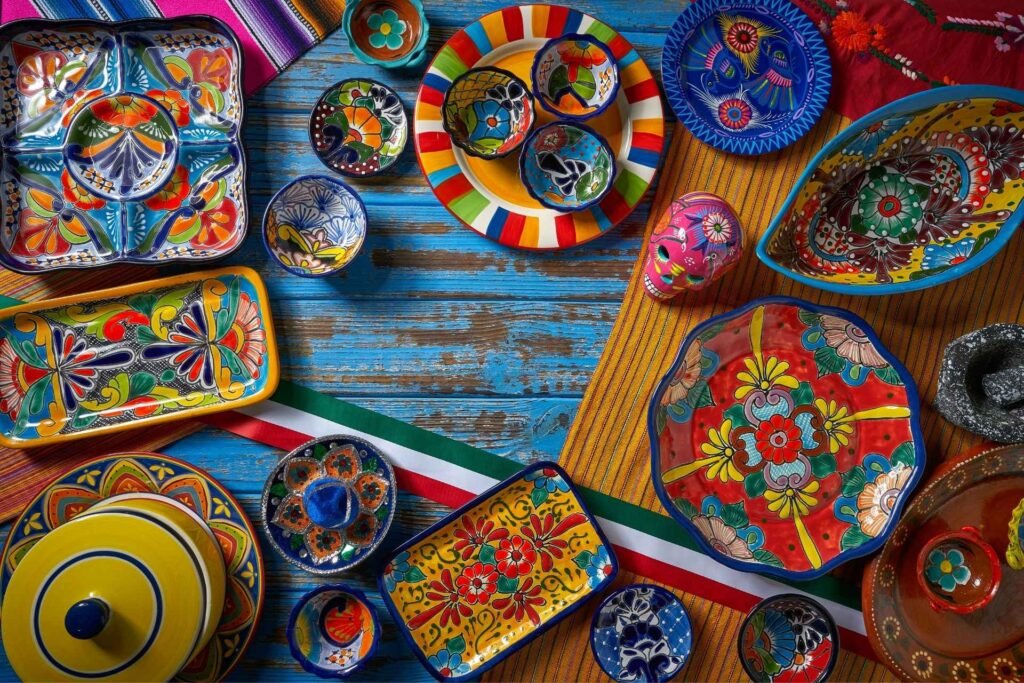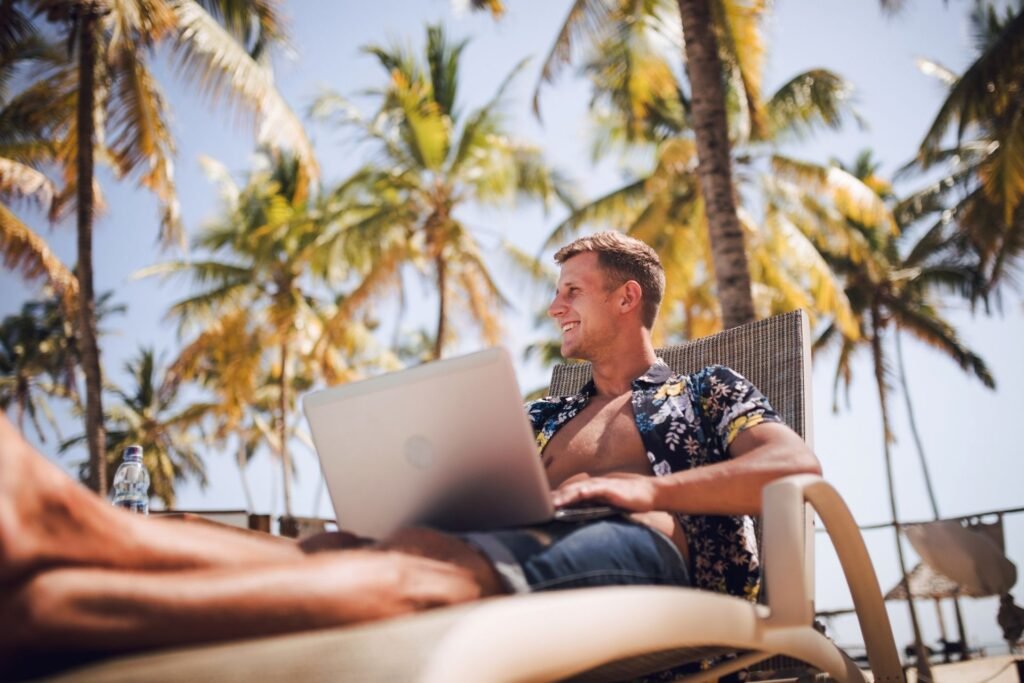The Art of Traveling Slow
In a world obsessed with checking destinations off bucket lists and cramming experiences into short vacations, a quiet revolution is reshaping how thoughtful travelers explore the world. Slow travel luxury experiences are replacing frantic itineraries with meaningful connections, transforming tourism from superficial sightseeing into profound cultural immersion.
This mindful travel philosophy challenges everything modern tourism represents. Instead of racing through multiple countries in single trips, slow travelers spend weeks or months in fewer places, developing genuine relationships with communities and understanding destinations beyond their Instagram-worthy surfaces.
The slow travel movement attracts discerning travelers who value quality over quantity, depth over breadth, and authentic experiences over manufactured attractions. These journeys create lasting memories while supporting local economies in ways that traditional tourism cannot match.
Understanding the Slow Travel Philosophy
Slow travel extends far beyond simply staying longer in destinations. This travel philosophy emphasizes mindfulness, sustainability, and genuine cultural exchange that creates meaningful connections between travelers and local communities.
At its core, slow travel luxury experiences prioritize human connections over tourist attractions. Rather than viewing destinations as backdrops for photos, slow travelers engage with places as living communities where real people work, celebrate, and create daily life.
This approach naturally leads to sustainable tourism practices. Extended stays reduce carbon footprints from frequent flights while supporting local businesses through consistent, long-term patronage. Slow travelers typically choose locally-owned accommodations, neighborhood restaurants, and community-based activities that directly benefit residents.
The luxury aspect doesn’t necessarily mean expensive accommodations or premium services. Instead, it refers to the luxury of time – having enough space in your schedule to discover hidden corners, develop routines, and experience destinations like residents rather than tourists.
Benefits of Slow Travel vs Fast Travel
Traditional fast travel creates surface-level experiences that often leave travelers exhausted rather than enriched. Rushing between attractions, managing complex logistics, and constantly adapting to new environments can make vacations feel more stressful than restorative.
Slow travel eliminates this pressure by allowing natural rhythms to develop. You wake up without alarm clocks, eat lunch when hungry rather than when tour groups dictate, and explore neighborhoods based on curiosity rather than guidebook recommendations.
Financial benefits often surprise new slow travelers. While accommodation costs might seem higher for extended stays, the total cost per day typically decreases significantly. Long-term rentals cost less than nightly hotel rates, while cooking some meals and shopping at local markets reduces dining expenses.
Most importantly, slow travel creates space for genuine rest and reflection. The constant stimulation of new sights, sounds, and experiences can overwhelm the senses. Extended stays allow time to process and integrate experiences, leading to deeper personal growth and lasting memories.
Cultural understanding develops naturally through daily interactions with neighbors, shopkeepers, and community members. These relationships provide insights into local life that no guidebook or tour can replicate.

Choosing Destinations for Extended Travel Stays
The best slow travel destinations combine practical considerations with personal interests. Infrastructure matters – reliable internet, healthcare access, and basic amenities make extended stays comfortable and productive for remote workers or long-term travelers.
Cost of living significantly impacts slow travel budgets. Destinations where your currency stretches further allow for longer stays and more comfortable accommodations. Southeast Asia, Eastern Europe, and parts of Latin America offer exceptional value for slow travelers seeking luxury experiences without premium prices.
Climate considerations become more important for extended stays. Seasonal weather patterns affect daily life quality and activity options. Research monsoon seasons, winter temperatures, and summer heat levels to optimize timing for outdoor exploration and comfortable living.
Cultural openness to foreigners varies dramatically between destinations. Some communities welcome long-term visitors warmly, while others remain closed to outsiders. Research visa requirements, local attitudes toward foreign residents, and expat communities that can provide support and social connections.
Language barriers affect daily life quality during extended stays. While perfect fluency isn’t necessary, basic communication skills in local languages enhance experiences dramatically. Consider destinations where you have some language foundation or strong motivation to learn.
Creating Authentic Local Connections
Meaningful relationships form the foundation of successful slow travel experiences. These connections provide insider perspectives on local culture while creating support networks that enhance both safety and enjoyment during extended stays.
Start building relationships immediately upon arrival. Introduce yourself to neighbors, shop at the same local businesses regularly, and participate in community activities. Consistency and genuine interest in local life create opportunities for deeper connections.
Language exchange programs offer structured ways to meet locals while improving communication skills. Many communities have informal conversation groups where locals practice English while helping foreign visitors learn local languages. These exchanges often develop into lasting friendships.
Volunteer opportunities provide meaningful ways to contribute to communities while meeting like-minded locals and fellow travelers. Research organizations working on causes you care about, but ensure your skills match actual community needs rather than well-intentioned but unhelpful projects.
Religious or spiritual communities often welcome respectful visitors interested in learning about local beliefs and practices. Attending services, meditation sessions, or community celebrations can provide profound cultural insights while creating connections with committed community members.
Professional networking through coworking spaces, business associations, or industry meetups connects you with locals who share similar interests and work experiences. These relationships often lead to collaboration opportunities and lasting professional relationships.
Long-term Accommodation Strategies
Traditional hotels become impractical and expensive for slow travel, making alternative accommodation strategies essential for comfortable and affordable extended stays. The key is finding options that provide both comfort and authentic local living experiences.
Short-term rental platforms offer apartments and houses that provide authentic neighborhood experiences. Look for properties owned by locals rather than investment companies, as these often come with personal touches and insider recommendations about the area.
Extended-stay accommodations cater specifically to long-term travelers. These properties typically offer weekly or monthly rates significantly lower than nightly charges, along with amenities like kitchens, laundry facilities, and workspace areas.
Homestays with local families provide immersive cultural experiences while offering built-in local connections and language practice opportunities. Research hosts carefully and communicate expectations clearly to ensure positive experiences for everyone involved.
Co-living spaces designed for remote workers and long-term travelers offer community connections along with practical amenities. These properties typically include coworking areas, social events, and networking opportunities with fellow slow travelers.
House-sitting arrangements provide free accommodation in exchange for property maintenance and pet care. These opportunities offer authentic residential experiences while significantly reducing accommodation costs for budget-conscious slow travelers.
Negotiating monthly rates directly with hotels, guesthouses, or apartment owners often yields better deals than booking platforms. Many property owners prefer guaranteed long-term guests over uncertain nightly bookings and offer substantial discounts for extended commitments.

Immersive Cultural Activities
Slow travel provides time for deep cultural engagement that rushed tourism cannot accommodate. These experiences require patience and openness but create profound understanding and lasting memories.
Cooking classes extend beyond tourist demonstrations to ongoing relationships with local chefs and food traditions. Many slow travelers arrange weekly lessons that progress through entire cuisines, learning not just recipes but cultural significance of ingredients, preparation methods, and dining customs.
Artisan workshops offer opportunities to learn traditional crafts from master practitioners. Whether pottery, textiles, woodworking, or metalsmithing, these skills connect you with cultural heritage while creating tangible memories of your experiences.
Language immersion accelerates naturally during extended stays. Beyond formal lessons, daily interactions with merchants, service providers, and neighbors provide constant practice opportunities. Many slow travelers achieve conversational fluency during months-long stays.
Cultural festivals and celebrations take on deeper meaning when you understand local contexts and can participate as community member rather than tourist observer. Extended stays often coincide with multiple celebrations, providing comprehensive understanding of local traditions.
Religious and spiritual practices offer profound cultural insights for respectful participants. Whether meditation retreats, ceremony participation, or philosophical discussions with local practitioners, these experiences provide unique perspectives on local worldviews.
Traditional music and dance lessons connect you with cultural expressions that define community identity. Many cultures welcome foreign students interested in learning traditional arts, especially when approached with genuine respect and commitment.
Sustainable Tourism Through Slow Travel
Slow travel naturally aligns with sustainable tourism principles by reducing environmental impact while maximizing economic benefits for local communities. This approach creates positive change that extends far beyond individual travel experiences.
Reduced transportation needs significantly lower carbon footprints. Slow travelers take fewer flights, use local transportation systems, and often walk or bike for daily activities. This environmental benefit appeals to conscious travelers concerned about climate change impacts.
Local economic support through extended patronage creates stable income for small businesses. Regular customers at local restaurants, shops, and service providers contribute consistently to community economic health rather than brief tourist spending spikes.
Cultural preservation benefits from slow travelers interested in authentic traditions rather than commercialized attractions. Support for traditional crafts, languages, and customs helps communities maintain cultural identity while generating economic value from heritage preservation.
Environmental awareness develops naturally through extended observation of local ecosystems and environmental challenges. Slow travelers often become advocates for conservation efforts in places they’ve come to know intimately.
Community integration reduces the us-versus-them dynamic common in traditional tourism. When foreign visitors become temporary community members, mutual understanding and respect develop that benefits both locals and travelers.
Planning Your Slow Travel Journey
Successful slow travel requires different planning approaches than traditional vacations. Flexibility becomes more important than detailed itineraries, while practical considerations like visas, healthcare, and finances need more careful attention.
Visa requirements significantly impact destination choices and stay durations. Research tourist visa limits, extension possibilities, and visa runs to neighboring countries. Some destinations offer special long-stay visas for remote workers or retirees that provide better options than tourist visas.
Healthcare considerations become crucial for extended international stays. Research local healthcare quality, insurance coverage options, and prescription medication availability. Some countries require specific vaccinations or health certificates for extended visits.
Financial planning must account for irregular expenses and currency fluctuations. Maintain emergency funds in multiple currencies and understand local banking options for accessing money during extended stays. Some countries restrict foreign bank account access or have complex currency regulations.
Communication setup including international phone plans, internet access, and emergency contact procedures ensures you can stay connected with home while managing local needs. Research local communication infrastructure and backup options for important connectivity needs.
Tax implications vary significantly for extended international stays. Understand residency requirements, tax obligations, and reporting requirements for both home and destination countries. Consult tax professionals familiar with international travel for complex situations.

Technology and Remote Work Integration
Digital nomadism and remote work opportunities have revolutionized slow travel possibilities, allowing extended stays without career interruptions. Technology integration becomes essential for maintaining professional responsibilities while maximizing travel experiences.
Reliable internet access tops priority lists for working slow travelers. Research connectivity options including fiber internet, mobile hotspots, and coworking space availability. Have backup plans for important calls or deadlines when primary connections fail.
Time zone management affects both work productivity and personal relationships. Choose destinations with favorable time zones for your work requirements while considering impacts on family and friend communications. Some locations offer better overlap hours for international collaboration.
Workspace setup significantly impacts productivity during extended stays. Look for accommodations with dedicated work areas, comfortable seating, and good lighting. Invest in portable equipment that creates productive environments anywhere you travel.
Professional networking opportunities exist in most major destinations through coworking spaces, industry meetups, and expat professional associations. These connections often lead to local collaboration opportunities and lasting professional relationships.
Legal considerations for remote work vary by destination and employment type. Understand tax implications, work permit requirements, and business license needs if you plan to earn income while traveling. Some countries have specific digital nomad visa programs that simplify these requirements.

Overcoming Common Slow Travel Challenges
Extended stays present unique challenges that quick tourism avoids. Preparation and flexibility help navigate these obstacles while maintaining positive travel experiences.
Loneliness can affect slow travelers separated from familiar support networks for extended periods. Combat isolation through community involvement, regular communication with home, and connections with fellow expats or travelers in similar situations.
Routine establishment prevents extended stays from feeling aimless or unproductive. Create structure through regular activities, exercise routines, or learning goals that provide purpose and progress markers during long-term travels.
Cultural fatigue sometimes affects travelers dealing with constant cultural differences and communication challenges. Allow rest periods, maintain some familiar routines, and don’t pressure yourself to be constantly engaged with new experiences.
Administrative complexity increases with longer stays. Stay organized with document storage, visa tracking, and financial management. Develop systems for managing paperwork and deadlines that prevent stressful last-minute situations.
Relationship maintenance requires intentional effort when traveling for extended periods. Schedule regular communication with important people, remember time zones for calling, and make efforts to stay involved in friends’ and family’s lives despite physical distance.
The art of traveling slow transforms journeys from destination collecting into life-enriching experiences that create lasting personal growth and meaningful connections. This approach requires patience, flexibility, and openness to experiences that can’t be rushed or manufactured.
Slow travel luxury experiences prove that the greatest travel luxuries are time, authenticity, and genuine human connection rather than expensive amenities or exclusive access. These journeys create memories that last lifetimes while contributing positively to the communities that welcome long-term visitors.
Whether you’re seeking career flexibility, cultural immersion, or simply a different way to explore the world, slow travel offers pathways to experiences that traditional tourism cannot provide. The investment in time and planning pays dividends in personal growth, cultural understanding, and life satisfaction that extend far beyond any single journey.




Leave a Reply